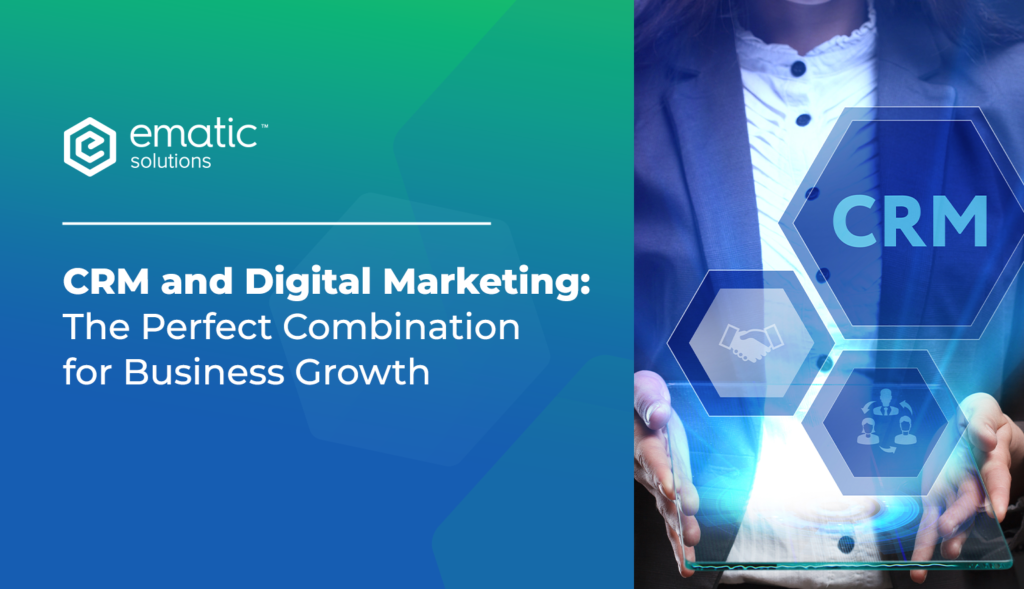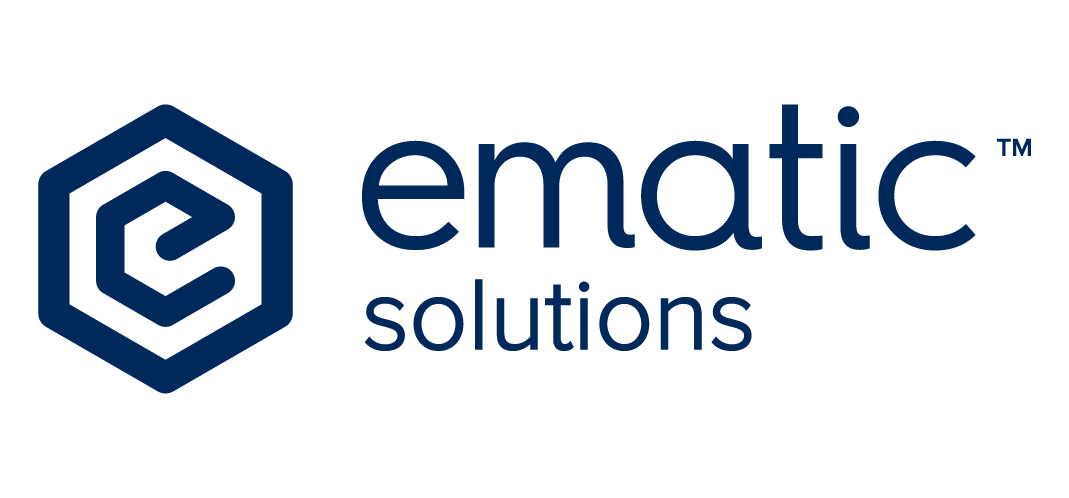CRM and Digital Marketing: A Perfect Combination for Business Growth

In today’s rapidly evolving digital landscape, businesses are compelled to be more adaptive to changing consumer behaviors and market competition. One proven effective strategy is the combination of Customer Relationship Management (CRM) and digital marketing. This article will delve into how integrating CRM and digital marketing can be the perfect combination for business growth. Here are five key subtopics we will explore: Understanding CRM and Digital Marketing CRM (Customer Relationship Management) is a strategic approach that companies use to manage their relationships with customers. It encompasses various tools and techniques designed to help businesses understand customer needs, enhance interactions, and build long-term loyalty. Using CRM in digital marketing enables businesses to collect, analyze, and leverage customer data more effectively. As a result, companies can create more personalized and relevant marketing campaigns, ultimately increasing conversion rates and customer satisfaction. Benefits of Using CRM and Digital Marketing CRM allows businesses to develop more effective marketing strategies through more accurate market segmentation. With the ability to group customers based on demographics, behavior, and preferences, businesses can create more targeted campaigns. For example, CRM can help identify customers who are likely to make repeat purchases, allowing companies to design timely retention campaigns. Additionally, CRM enables tracking the ROI (Return on Investment) of digital marketing campaigns. By understanding which campaigns generate the highest revenue, businesses can allocate resources more wisely and focus on initiatives that yield the best results. Improved Lead Quality: By tracking customer interactions, CRM helps identify high-quality leads that are more likely to convert. Increased Conversions: Personalized messaging and marketing automation can boost conversion rates and generate more sales. Enhanced Customer Loyalty: By providing a better customer experience, CRM helps build stronger relationships with customers and increase their loyalty. Better Decision Making: The data generated by CRM and digital marketing can be used to make more data-driven business decisions. Benefits of Integrating CRM with Digital Marketing Data Synchronization: By integrating CRM and digital marketing, businesses can unify all customer data from various channels. This allows marketing teams to have a more comprehensive understanding of customers. Personalized Messaging: Integrated data can be used to create more relevant and personalized marketing messages for each customer. This increases the likelihood of customers taking the desired action, such as making a purchase or providing a recommendation. Marketing Automation: CRM and digital marketing can be automated for routine tasks such as sending marketing emails, updating lead statuses, and follow-up reminders. This saves time and allows marketing teams to focus on more complex strategies. Optimizing Customer Experience Through Data Customer data collected through CRM is key to creating an optimal customer experience. In digital marketing, a good customer experience can be a significant differentiator. By analyzing CRM data, businesses can gain a deep understanding of the customer journey and identify the most influential touchpoints. For example, if CRM data shows that many customers encounter difficulties during the checkout process, businesses can take proactive steps to improve the process, whether through website optimization or customer education campaigns. Thus, the integration of CRM and digital marketing not only improves marketing efficiency but also helps create a better customer experience. Real-World Examples E-commerce: E-commerce companies can use CRM to track customer purchase history, provide relevant product recommendations, and send targeted promotional emails. Startups: Startups can leverage CRM and digital marketing to build brand awareness, build retention, acquire new customers, and accelerate business growth. Tips for Selecting and Implementing CRM Identify Business Needs: Before choosing a CRM, determine your business needs and the features that are important to you. Select the Right Platform: Consider your business size, budget, and the level of complexity required in a CRM. Train Your Team: Ensure your team receives adequate training to use the CRM effectively and understand its benefits. Integrate with Other Tools: Ensure the chosen CRM can integrate with other digital marketing tools you use for maximum efficiency. By understanding and implementing the integration of CRM and digital marketing, businesses can harness the power of data to enhance marketing strategies, improve the customer experience, and drive sustainable growth. CRM Tools That You Need To Know These are CRM (Customer Relationship Management) tools that can help elevate your business: Mailjet Mailjet is an email marketing platform that allows users to create, send, and track email campaigns. In addition, Mailjet supports email API for transactional and marketing emails. Its key features include customer segmentation, A/B testing, customizable email templates, and real-time analytics to track campaign performance. Klaviyo Klaviyo is a marketing platform focused on email and SMS, primarily for e-commerce businesses. Klaviyo integrates customer data from various platforms (such as Shopify, Magento, etc.) to create personalized communication experiences. Its key features include automated segmentation, AI-powered product recommendations, and in-depth analytics to monitor ROI from marketing campaigns. Iterable Iterable is a cloud-based marketing platform focusing on cross-channel communications (email, push notifications, SMS, social media, etc.) to enhance customer experiences. Iterable allows businesses to create automated workflows and personalized messages based on customer interactions. It is often used by companies with a focus on growth marketing and customer engagement. Hi-IQ Hi-IQ is a CRM designed to support smarter customer relationship management. Typically, this platform uses data analytics and artificial intelligence (AI) to improve customer experiences and assist businesses in making better decisions based on customer behavior and needs. Salesforce Salesforce is one of the most popular CRM platforms globally, used by both large and small businesses. Salesforce offers various tools for sales management, customer service, marketing, and analytics. The platform allows flexible integration with third-party applications and supports various types of business process automation. Salesforce is also known for its flexibility in customizing CRM according to specific business needs. These tools help businesses manage and build better relationships with their customers through more personalized and efficient communication strategies. CRM Services Offered by Ematic Solutions Ematic Solutions provides Customer Relationship Management (CRM) services to help businesses enhance their customer relationships through advanced strategies and technologies. They offer several key services, such as: Platform Management: Assisting businesses in selecting, implementing,
Iterable: A cross-channel messaging platform with powerful data integration
Most of the time, marketers need a cross-channel messaging solution that is flexible and can be seamlessly integrated with the rest of their existing marketing technologies in the growth stack. Iterable was built to solve that problem by offering a cross-channel messaging solution with a flexible data integration that also focuses on the mobile app. It covers email, push notification, SMS, In-apps push, and more with their “webhook” capability that can be used as a wild card for marketers to integrate additional channels into their customer workflows. The platform is great for advanced marketers who have complex data management or integration needs and for those who are looking to have flexibility with creating or personalizing their emails and customer journeys. They have an excellent drag-and-drop and HTML email builder for designing and personalizing campaigns. An interface that was built for marketing and developer teams. Workflow studio that is easy and straightforward to use and edit to create sophisticated customer journeys. They are capable of storing up to 1,000+ data fields in any pricing plan and showcase user’s profile information including their channel preferences in a single view. The API allows marketers to easily integrate with any marketing tools, and they also have direct integrations with major enterprise tools and other eCommerce apps. Insights or analytics dashboard that can be customized according to which metrics or KPI are important for your business. Iterable’s pricing model will go as you scale from the number of contacts and total email sends. It allows you to have full control of the cost and manage growth better. Through Ematic, we can help you to get it at a better arrangement and rates, and provide ongoing support to help you further monitor the account health and email performance. If you are keen to know more about Iterable and its pricing, contact our team today and get a demo!
Iterable pulls down $200M, becomes a Two-nicorn
Hot on the heels of Klaviyo’s recent $320M round, Iterable barks back with a huge round of there own, reportedly coming in at $200M and valuing the business at $2bn. https://iterable.com/blog/our-next-chapter-series-e-funding-announcement/ We’ll need to start formally tracking, but this looks like the 3rd largest round for a messaging platform ever. Klaviyo set the new standard recently, and otherwise Campaign Monitor’s $250M all the way back in 2014 still stands in second place. Where Klaviyo has succeeded as the leader in ecommerce (particularly for Shopify users) Iterable has focused on being an indispensable component of the mobile growth stack, and takes an integration-first approach to allow marketers to quickly assemble a killer mobile marketing stack. Prediction: look for Braze to announce a new round soon. Messaging (and Email Marketing) are hot right now.
Iterable update: co-founder takes over as CEO
This is good to see: https://iterable.com/blog/andrew-boni-focusing-on-the-future-together/ Looks like Andrew is a co-founder and has been with Iterable since the beginning (8 years+) so that should bring stability following the recent departure of the previous CEO.
